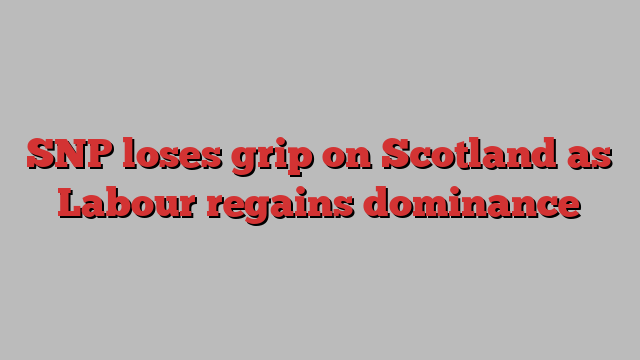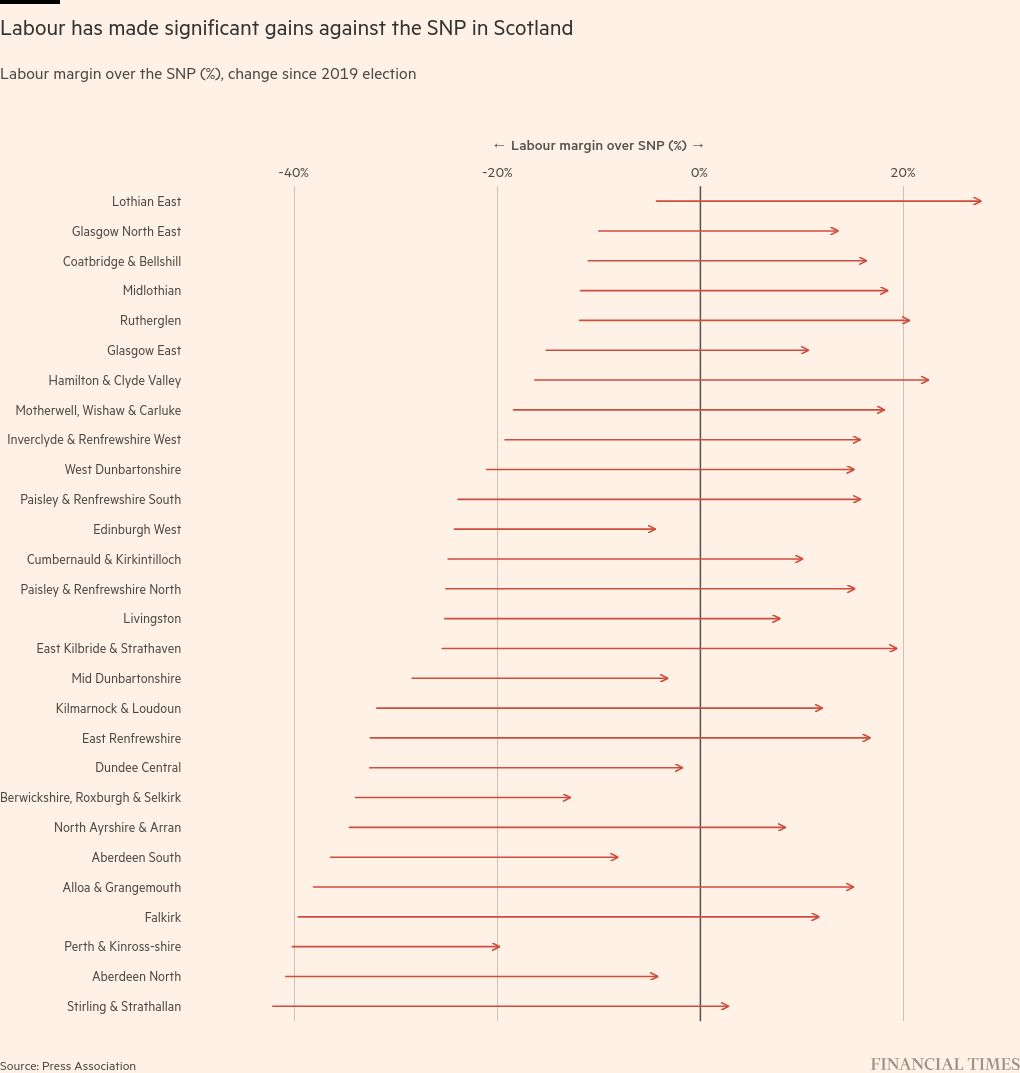
Unlock the Editor’s Digest for free
Roula Khalaf, Editor of the FT, selects her favourite stories in this weekly newsletter.
Labour has won a swath of Westminster seats from the Scottish National party as the pro-independence group heads towards its worst potential result since 2010.
By 4am on Friday, the SNP had won only four seats, with an Ipsos exit poll at 10pm on Thursday projecting it would take only 10 constituencies, down from the 48 it won in 2019. It won six seats in 2010.
Labour, which won just a single Scottish seat in 2019, is on course to overtake the SNP to become Scotland’s largest party as part of Sir Keir Starmer’s unfolding national landslide. Labour has never won an election in modern times without a significant number of Scottish seats.
Stephen Flynn, who leads the SNP in Westminster, said it was “quite clear the Scottish National party is having a difficult night”.
He added: “We are going to be beat in Scotland, we are going to be beat well. Now is the time when we must learn and we must listen. We must listen to what the people of Scotland tell us.”
After the exit poll was published, former SNP leader Nicola Sturgeon called the forecast result “seismic”, admitting it was “at the grimmer end of the expectations”.

Under Sturgeon, the party moved into a dominant position in Scotland in 2015, a year after Scots voted to remain within the UK in an independence referendum.
But the party — in power in the Scottish parliament in Holyrood for 17 years — has been tarnished by a series of scandals, while polls suggested voters were disappointed with its record on issues such as healthcare, education and transport.
The exit poll forecasts it will lose its status as the third-largest party in the House of Commons, something that will leave it with a lower profile. In recent years its leaders at Westminster have been able to use guaranteed airtime during prime minister’s questions to agitate on issues such as Brexit and the Gaza conflict.
The party, already facing a squeeze in donations, would also lose a proportion of its public funding if it slips down the ranking of parties in parliament.
As results rolled in on Friday morning, Labour was in the process of retaking seats across the populous Central Belt from Inverclyde, to the west of Glasgow, through the post-industrial heartlands to Edinburgh and beyond, as far east as East Lothian and Fife.
The exit poll also projected that the Conservatives would double their seats to 12. The Tories, who are expected to report their worst UK-wide result in close to two centuries, won six seats at the last election in 2019.
One Conservative official described the poll as highly unrealistic, with those six battleground seats against the SNP being “very tight”.
The large Labour majority in Scotland deals a blow for the nationalist cause. During the campaign, SNP leader John Swinney had said winning the most seats in Scotland in the general election would give him a mandate to open negotiations with the new government for another independence referendum.
Labour won only one seat in 2019, Edinburgh South, which went to Ian Murray, the favourite to be appointed Scotland secretary in a potential Starmer government.
The turnaround in Labour’s fortunes north of the border under the leadership of Anas Sarwar has been augmented by an active campaign in Scotland, with several high-profile visits from Starmer and senior Labour figures who saw the foundation of their pathway to power originating in Scotland.
“Labour MPs will be powerful advocates for Scotland in positions across a Labour government — and I also want to start delivering for Scotland on day one in government,” Starmer said at a rally in East Kilbride on the eve of the election.
One retired voter in Edinburgh who, like many independence-supporting Scots, switched to Labour this election, said: “I haven’t voted Labour since Harold Wilson when I was a student in London in 1964 . . . The SNP has been punished for its record.”